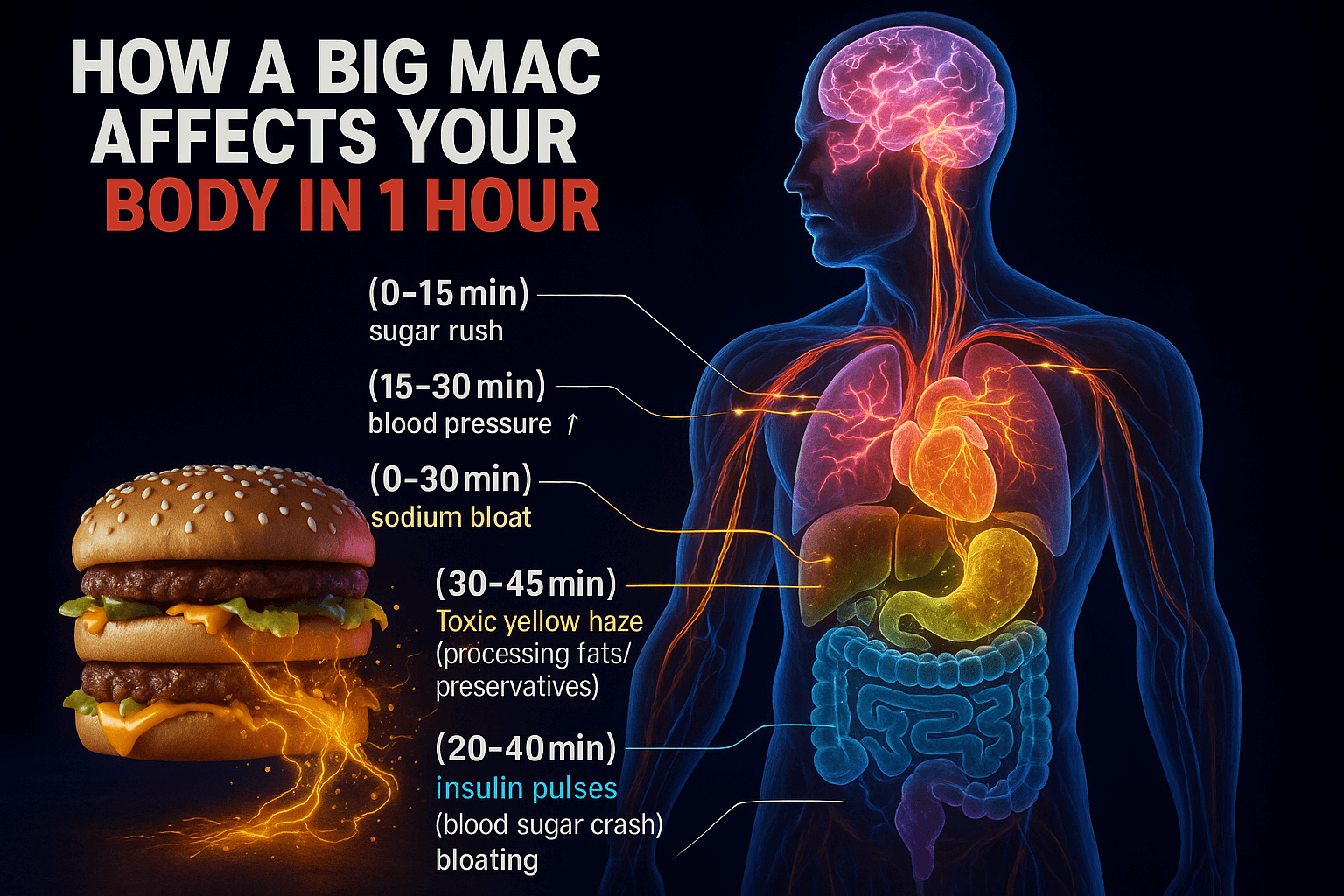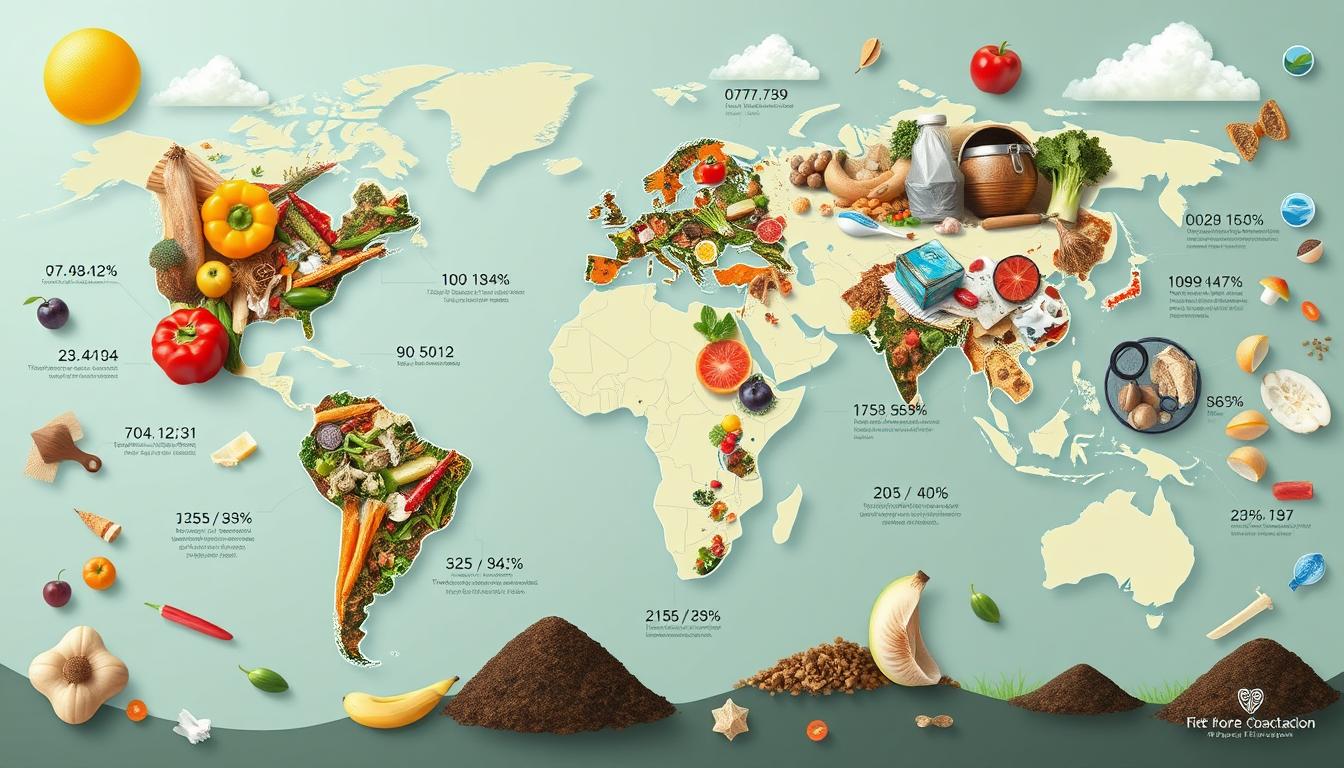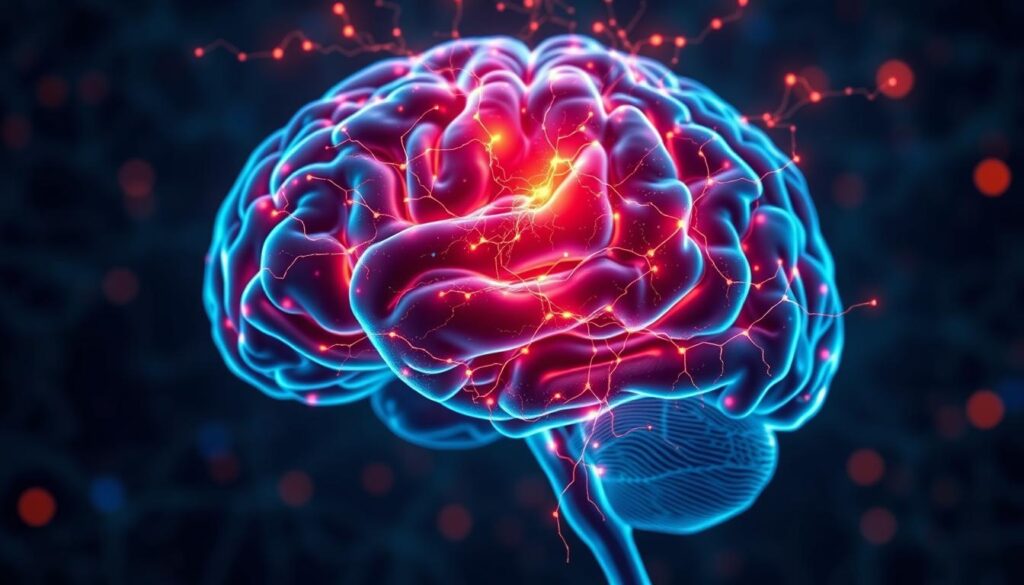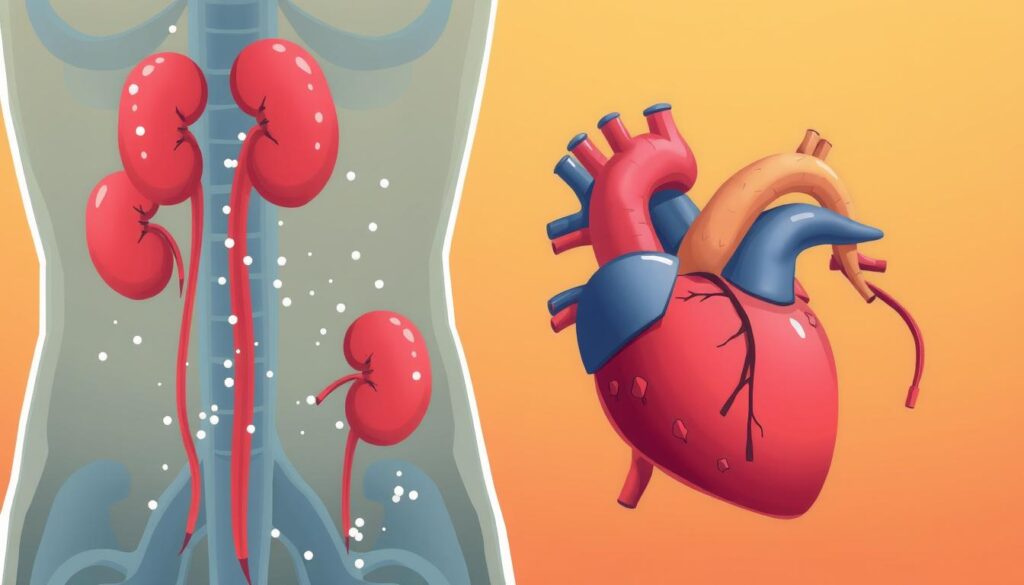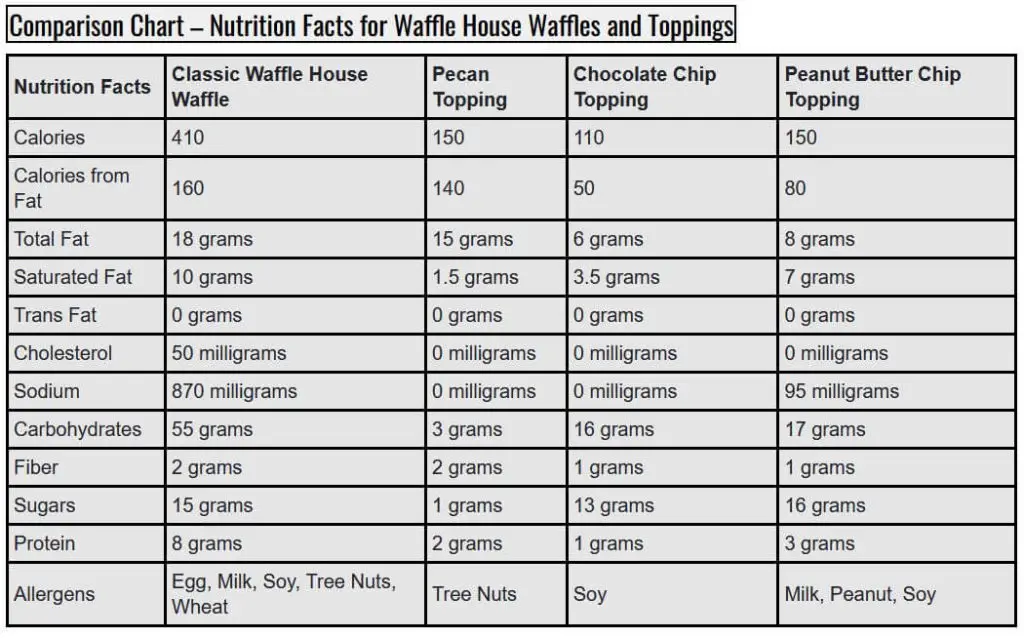Did you know an average Big Mac has 580 calories? This famous burger from McDonald’s tastes great but can harm your health. When you eat a Big Mac, your body starts to digest the fructose corn syrup, sodium, and trans fats.
The bun in a Big Mac has 1060 milligrams of sodium which will put extra work on your kidneys and heart. While high sodium can contribute to dehydration, a single Big Mac’s sodium is high but not enough to cause dehydration in most healthy adult. Eating the burger makes your brain happy for a bit. But, the sugar and salt make you want more junk food.
Digesting a Big Mac takes from 24–72 hours because of the grease and trans fats. This slow digestion makes you feel tired and uncomfortable. Also, eating junk food when your blood sugar is unstable makes you crave more unhealthy foods.
Eating Big Macs and other fast foods often can lead to obesity, diabetes, and heart disease. Knowing how your body reacts to a Big Mac in the first hour can help you choose better foods.
Key Takeaways
- A Big Mac contains 580 calories, 7 grams of total sugar, 5 grams of added sugar, 45 grams of total carbohydrates, 1 gram of trans fat, 11 grams of saturated fat, 34 grams of total fat, 1060mg sodium, 25 grams of protein, and 3 grams of fiber
- Eating a Big Mac activates reward centers in the brain but can also trigger cravings due to its sugar and salt content
- A single Big Mac is unlikely to cause dehydration or abnormal blood sugar spikes due to its fat content
- The slow digestion process for a Big Mac can take 24–72 hours, leading to sluggishness and discomfort
- Consuming junk food when blood sugar levels are unstable can intensify cravings for more unhealthy foods
- Regular consumption of fast food like Big Macs can increase the risk of obesity, diabetes, and heart disease
- Most claims about extreme digestion time and “addictive” properties are exaggerated
⏱️ Big Mac Body Impact Timeline ⏱️
🍔 Slide the timeline to see what happens in your body after eating a Big Mac 🍔
First 10 Minutes 😋
Your taste buds are activated as you enjoy the flavors. Your brain releases dopamine - making you feel happy and satisfied 😊. Blood sugar levels begin to rise due to the high calories (580 calories) and refined carbs in the bun. 📈
Table of Contents
- 1 The Appeal of Fast Food and the Big Mac
- 2 🧠 Big Mac Health Knowledge Quiz 🧠
- 3 Nutritional Content of a Big Mac
- 4 🫀 Big Mac Impact on Body Systems 🧠
- 5 The First 10 Minutes After Eating a Big Mac
- 6 20 Minutes Post-Big Mac Consumption
- 7 30 Minutes After Eating a Big Mac
- 8 The 40-Minute Mark: Craving More Junk Food
- 9 50-60 Minutes: The Slow Digestion Process Begins
- 10 The Cumulative Effects of Regular Big Mac Consumption
- 11 What happens if you eat a big mac everyday?
- 12 How long does it take to burn off a big mac?
- 13 Big Mac 🍔 Calorie Burn 🔥 Calculator
- 14 Healthier Alternatives to the Big Mac
- 15 The Importance of Moderation in Fast Food Consumption
- 16 Source Links
The Appeal of Fast Food and the Big Mac
Fast food has become very popular over the years. McDonald’s is a big example of this growth. In 1970, there were 1,500 McDonald’s restaurants. Now, there are over 38,000 in more than 100 countries.
- 1970: 1,500 McDonald’s restaurants worldwide.
- Today: Over 38,000 restaurants in more than 100 countries.
The Big Mac is a famous fast food burger. It has two beef patties, special sauce, lettuce, cheese, pickles, and onions on a sesame seed bun. It has 580 calories and 1 gram of trans fat in the US. Yet, it’s a favorite among many.
McDonald’s has grown its advertising a lot. In 1967, they spent $2.3 million. By 1985, it was $311.6 million, and in 2022, it was $638 million. This big push in advertising helped make the Big Mac famous.
- 1967: $2.3 million
- 1985: $311.6 million
- 2022: $638 million
But, eating more fast food has led to more obesity. Obesity rates in the US went up from 1971 to 1980. Then, they kept rising for 20 years, and then some more from 1999 to 2016. Fast food, like the Big Mac, is full of calories, salt, sugar, and fat. This can lead to obesity.
🧠 Big Mac Health Knowledge Quiz 🧠
Test your knowledge about Big Mac nutrition facts and health effects
Nutritional Content of a Big Mac
Looking at a Big Mac’s nutritional value is important. It has 550 kcal, a big part of what an average person should eat in a day. Adding a medium fries and a strawberry milkshake makes it over 1,200 calories. This is more than half what an average woman should eat in a day.
Calories in a Big Mac
A Big Mac alone has a lot of calories. But, think about the whole meal. A Big Mac with fries and a strawberry milkshake has 1186 kcals. This can easily lead to eating too much if you’re not careful.
Consider a complete meal:
- Big Mac: 580 calories
- Medium Fries: Approximately 320 calories
- Strawberry Milkshake: Approximately 370 calories
- Total: Over 1,200 calories
This total exceeds half the recommended daily calorie intake for many adults, particularly women.
Fat Content in a Big Mac
The Big Mac meal has a lot of fat, with 11g of saturated fats in one serving. Too much saturated fat can harm your heart and lead to health problems. It can also cause heartburn and acid reflux, starting within 20 minutes to an hour after eating.
Sodium Levels in a Big Mac
The Big Mac meal also has a lot of sodium. It has over half the daily recommended salt intake. This can cause water retention and bloating. Too much sodium can also raise blood pressure and lead to heart problems, so it’s important to watch your salt intake when eating fast food.
While the Big Mac meal has some good nutrients, like 3g of fiber from the potatoes, bun, and salad, it’s important to think about the whole picture. Eating too much fast food, like the Big Mac, can lead to weight gain and increase the risk of diabetes and heart disease. It’s best to enjoy fast food in moderation.
🫀 Big Mac Impact on Body Systems 🧠
⚠️ Explore how a Big Mac affects different systems in your body ⚠️
The First 10 Minutes After Eating a Big Mac
When you bite into a Big Mac, your taste buds get a burst of flavors and textures. But what happens in your body right after is quite interesting.
Activation of Reward Centers in the Brain
Your brain’s reward centers light up when you enjoy a Big Mac. This triggers the release of “feel-good” chemicals like dopamine. This dopamine release makes you feel happy and satisfied, like some drugs do.
Blood Sugar Levels Begin to Rise
Right after eating a Big Mac, your blood sugar starts to go up. The fat content in the burger actually slows down the absorption of carbohydrates, moderating the blood glucose spike compared to pure sugar.
Here’s what’s in a Big Mac in the United States:
| Nutritional Component | Amount |
|---|---|
| Calories | 580 |
| Trans Fat | 1 gram |
| Sodium | 1060mg |
A Big Mac has a lot of sodium, about 1060 milligrams. This can raise your blood pressure and stress your heart and kidneys. Even though fat slows digestion, a Big Mac’s nutrients can affect your body a lot.
20 Minutes Post-Big Mac Consumption
About 20 minutes after eating a Big Mac, your body starts to feel the effects. The bun’s fructose corn syrup and sodium can increase cravings and overeating but they are not addictive. They can make you want more fast food, leading to overeating and health problems. McDonald’s sells over 2.5 million Big Macs worldwide every day. It’s important to know how these ingredients affect you.
Can High Fructose Corn Syrup Lead to Overeating?
The Big Mac bun’s high fructose corn syrup quickly raises your blood sugar. This can lead to an insulin response, causing hunger and blood sugar control issues. This ingredient can make you crave more fast food, leading to overeating. The US Big Mac has corn syrup in the bun and sauce, but the UK version has less sugar, over 22% less.
Sodium’s Impact on Cravings
A Big Mac has 1060 milligrams of sodium, a lot of your daily limit. This high sodium can make you crave more salt. Over time, it can lead to heart disease and stroke.
Knowing how fructose corn syrup and sodium work can help you make better choices. It can help you avoid overeating and long-term health problems.
30 Minutes After Eating a Big Mac
Half an hour after eating a Big Mac, your body starts to feel the effects of its high sodium. This burger has 1060 milligrams of sodium, almost half of what you should have in a day. This high salt intake can cause fluid retention but will not result in dehydration. Your body tries to keep electrolyte levels balanced.
Your blood pressure might go up as your kidneys work hard to get rid of the sodium. This can harm your heart and kidneys over time. Eating foods high in sodium, like the Big Mac, raises your risk of heart disease and stroke.
Can a Big Mac’s High Sodium Content Lead to Dehydration?
The Big Mac’s high sodium can upset your body’s fluid balance but it will not lead to dehydration. Your body holds onto water to dilute the sodium in your blood. This fluid retention can make you feel bloated and gain weight temporarily. Your body then tries to drink more water to stay hydrated.
Increased Workload on Kidneys and Heart
Your kidneys have to work harder to filter out the sodium, which can damage them over time. The sodium in a Big Mac also makes your blood vessels narrow. This forces your heart to work harder, leading to high blood pressure and heart problems.
To avoid the negative effects of a Big Mac, eat less sodium and choose healthier foods. By making smart food choices and watching your salt intake, you can protect your kidneys, heart, and overall health.
The 40-Minute Mark: Craving More Junk Food
About 40 minutes after eating a McDonald’s Big Mac, you might feel hungry again. This is because the burger has a lot of high-fructose corn syrup and sodium in the bun. These ingredients start a cycle of unhealthy eating habits and junk food cravings.
The high fructose corn syrup in the bun makes you feel good, like a drug. This can make you want to eat more junk food. It’s like you’re addicted to it, leading to bad food choices and health problems.
The Big Mac also has a lot of sodium, 1060 milligrams in the US and 2.3g of salt in the UK but it will not make you dehydrated. Your body might think it needs more food, causing blood sugar fluctuations, high blood pressure, heart diseases, and strokes.
50-60 Minutes: The Slow Digestion Process Begins
After eating a Big Mac, your body starts to digest it around 50 to 60 minutes. But, the grease and trans fat in it slow down this process. It can take 24–72 hours for your body to get rid of the Big Mac.
Digestive Timeframe for a Big Mac
Eating a Big Mac can cause gastrointestinal issues and discomfort. The high fat and grease levels can lead to bloating, indigestion, and constipation. This slow digestion also affects your gut health, upsetting the balance of bacteria in your gut.
Impact of Grease and Trans Fat on Digestion
Trans fat in a Big Mac makes digestion harder. It causes inflammation and can lead to chronic health problems. Your digestive system works hard to break down these harmful fats, leading to long-lasting symptoms.
Choosing healthier foods and eating less fast food can improve your gut health and lower the risk of gastrointestinal issues.
The Cumulative Effects of Regular Big Mac Consumption
Enjoying a Big Mac is more than a one-time treat. It can lead to chronic health problems over time. A single Big Mac has 580 calories, 28 grams of fat, and 960 milligrams of sodium. This makes frequent eating of it a risk for weight gain and metabolic disorders.
Increased Risk of Obesity
Regular Big Mac consumption raises the risk of obesity. The high calorie and fat content in these burgers can quickly cause weight gain. Studies show that women with depression and stress have a higher triglyceride response after eating high-fat meals.
Just one extra stressor a day can add almost 11 pounds a year.
Higher Likelihood of Developing Diabetes
The sugar and carbs in Big Macs increase the risk of diabetes. Foods high in sugar and carbs raise blood sugar levels, straining insulin production. This can lead to insulin resistance and type 2 diabetes.
Research links more stressors with higher insulin levels after meals. This is a concern for those who eat fast food like Big Macs regularly.
Elevated Risk of Heart Disease
The sodium, saturated, and trans fats in Big Macs harm your heart health. High sodium can cause high blood pressure, a heart disease risk. The fats in these burgers can also clog arteries, raising heart attack risk.
A balanced diet with whole foods is key for a healthy heart.
What happens if you eat a big mac everyday?
Eating a Big Mac every day can harm your health because of its low nutritional value. A Big Mac has 1010 mg of sodium, more than the 1500 mg daily limit for those with high blood pressure. It also has 25% of the Daily Value of iron and 25 grams of protein, which is good. But, the high fat can raise blood triglycerides, leading to artery plaque over time.
Research shows that eating only McDonald’s can cause vitamin deficiencies. These affect bone health, immune system, blood pressure, and heart health. Also, the high fat and carbs can make you feel tired and sleepy all the time.
The fructose corn syrup in Big Macs can cause insulin spikes, making you hungry again soon. This can lead to overeating and weight gain. A study found that eating McDonald’s for 10 days can also harm your gut microbiome, affecting your health.
While an occasional fast food treat is okay, eating Big Macs every day is risky. It can increase the chance of obesity, diabetes, and heart disease. Knowing the risks of daily fast food can help you choose better. Focus on a diet rich in nutrients for your health and well-being.
How long does it take to burn off a big mac?
Burning off the 550 calories in a Big Mac requires a lot of physical activity. The time it takes to burn these calories depends on several factors. These include your basal metabolic rate (BMR), how active you are, the thermic effect of food (TEF), and non-exercise activity thermogenesis (NEAT). Your genetics, age, sex, and muscle mass also affect how many calories you burn.
To burn off a Big Mac, a 150-pound person would need to run for about 45 minutes, cycle for 55 minutes, swim for 75 minutes, or walk for 110 minutes. High-intensity interval training (HIIT) for 55-80 minutes can also effectively burn off the calories from a Big Mac. Just 30 minutes of HIIT can be more efficient in burning calories than training at a more sustained pace for a longer period.
For example, a 150-pound person might need to:
- Run for about 45 minutes
- Cycle for about 55 minutes
- Swim for about 75 minutes
- Walk for about 110 minutes
Weight training may not burn as many calories as cardio exercise, but it can increase the metabolic rate by up to 30%, leading to more calories burned post-exercise. Doing a strenuous weight training session the day before consuming fast food could increase metabolism by 20%, resulting in burning an extra 400 calories.
The macronutrient composition of your diet, meal timing, and hydration also impact calorie burning. Incorporating regular exercise and maintaining a balanced diet are key for effective weight management when occasionally indulging in fast food like a Big Mac
Big Mac 🍔 Calorie Burn 🔥 Calculator
Healthier Alternatives to the Big Mac
To avoid the negative health effects of Big Macs, it’s important to choose better options. A Big Mac has 580 calories, which is over 25% of what an adult needs in a day. It also has 25 grams of fat and 1060 milligrams of sodium.
When planning meals, include whole foods like fruits, veggies, lean proteins, and whole grains. These foods are full of vitamins, minerals, and fiber. They don’t have the sugars, unhealthy fats, and sodium found in fast food. A Big Mac only has 3 grams of fiber, which is less than the 25g the American Heart Association recommends.
Choosing whole foods in your meal planning helps make healthy, tasty meals. Try new recipes and flavors to keep your diet interesting. While a Big Mac has 25g of protein and iron, it’s better to get these nutrients from healthier foods.
The Importance of Moderation in Fast Food Consumption
It’s tempting to enjoy fast food favorites like the Big Mac. But, it’s key to eat in moderation for good health. Fast food meals are often high in calories, with adults eating about 836 calories per meal. A Big Mac, fries, and a Coke at McDonald’s is 1,430 calories, which is a lot for one meal.
Eating fast food too often can lead to health problems. It can increase the risk of type 2 diabetes and heart disease. It also means you eat less healthy foods like milk, fruits, and veggies.
Treating Fast Food as an Occasional Treat
It’s better to see fast food as a rare treat, not a regular meal. Enjoying it in moderation lets you have your favorite foods without harming your health. Eat whole, nutritious foods most of the time and save fast food for special moments.
Too much fast food can lead to obesity. In the U.S., 33.8% of adults and 17% of kids and teens are obese. Almost one-third of kids aged 4 to 19 eat fast food daily, gaining six pounds a year. By eating in moderation, you can enjoy fast food sometimes while keeping your health first.
Source Links
- Here’s What Eating a Big Mac Does to Your Body in an Hour – https://www.sciencealert.com/here-s-what-eating-a-big-mac-does-to-your-body-in-an-hour
- I’m Not Lovin’ It: Re-Thinking Fast Food Advertising – https://scholarworks.uark.edu/cgi/viewcontent.cgi?article=1342&context=jflp
- What happens to your body one hour after eating a Big Mac revealed – https://www.dailymail.co.uk/femail/food/article-3244387/Dehydration-high-blood-pressure-HUNGER-pangs-happens-body-one-hour-eating-Big-Mac-revealed.html
- How Long Does It Take To Burn All the Calories From Eating A Big Mac? (Science Explained) | BOXROX – https://www.boxrox.com/how-long-does-it-take-to-burn-all-the-calories-from-eating-a-big-mac-science-explained/
- Minute by minute – what eating McDonald’s does to your body in just one hour – https://www.the-sun.com/health/5687487/minute-by-minute-mcdonalds-effect-body-one-hour/
- What really happens to your body an hour after you eat a Big Mac – https://www.independent.co.uk/life-style/health-and-families/health-news/what-really-happens-to-your-body-an-hour-after-eating-a-big-mac-expert-debunks-claims-10514427.html
- Here’s what eating a Big Mac does to your body in an hour. Don’t give in to its mind games. – https://www.linkedin.com/pulse/heres-what-eating-big-mac-does-your-body-hour-dont-give-ramkumar
- What Happens One Hour After Eating A Big Mac? – https://fastfoodmenuprice.com/big-mac-revealed/
- How A Big Mac Affects Your Body In 60 Minutes – https://www.huffingtonpost.co.uk/2015/09/23/big-mac-infographic-affect-on-body-in-60-mintues_n_8181280.html
- What Happens to Your Body One Hour After Eating a Big Mac – https://www.yahoo.com/news/what-happens-to-your-body-one-hour-after-eating-a-150514875.html
- What happens your body an hour after eating a Big Mac – https://entertainment.ie/trending/what-happens-your-body-an-hour-after-eating-a-big-mac-336623/
- ‘I Walked 30 Minutes Every Day for a Month, Now Both My Body and Mind Feel Better Than Ever’ – https://www.aol.com/walked-30-minutes-every-day-135100126.html
- The Big Mac And Health Concerns – FasterCapital – https://fastercapital.com/topics/the-big-mac-and-health-concerns.html
- Daily Stressors, Past Depression, and Metabolic Responses to High-Fat Meals: A Novel Path to Obesity – https://pmc.ncbi.nlm.nih.gov/articles/PMC4289126/
- What Eating a McDonald’s Burger Does to Your Body – https://www.eatthis.com/what-happens-eating-mcdonalds-burger/
- What Happens To Your Body When You Eat McDonald’s Every Day – Mashed – https://www.mashed.com/207431/what-happens-to-your-body-when-you-eat-mcdonalds-every-day/
- How much exercise it REALLY takes to burn off a Big Mac – https://www.dailymail.co.uk/femail/food/article-3513716/How-exercise-REALLY-takes-burn-Big-Mac.html
- How Bad Is a Big Mac For You, Really? – https://medium.com/in-fitness-and-in-health/how-bad-is-a-big-mac-for-you-really-6fa72f5b1477
- What a Big Mac Does to Your Body in 1 Hour – https://sg.style.yahoo.com/big-mac-does-body-1-020036702.html
- Healthy Fast Food Options: Find the Healthiest Fast Food – https://www.helpguide.org/wellness/nutrition/healthier-fast-food
- Criticism of fast food – https://en.wikipedia.org/wiki/Criticism_of_fast_food
- Fast Food and Obesity: A Study in a Local McDonald’s – https://sqonline.ucsd.edu/2013/01/fast-food-and-obesity/
